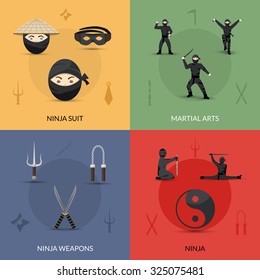5 Famous Martial Artists Who Changed The Training Course Of Background
5 Famous Martial Artists Who Changed The Training Course Of Background
Blog Article
Content By-Cooke Villarreal
You might not recognize it, however the world has actually been formed by the actions of a select couple of martial artists. These people have actually left an indelible mark on background, leading the way for generations of boxers and experts to find. They reinvented their respective arts, challenged the standards of society, and pushed the borders of what was assumed possible.
In this article, we will explore the lives and traditions of 5 popular martial artists that changed the course of history. From the Daddy of Modern Fighting Style to the best Samurai of All Time, these legendary figures have inspired millions around the globe. They have actually ended up being household names, identified with guts, discipline, and perseverance.
Via their trainings and actions, they have actually shown us what it indicates to be a true warrior. So, join us as we look into the interesting globe of fighting styles and discover the effect that these 5 individuals carried background.
Bruce Lee: The Daddy of Modern Martial Arts
You can't discuss martial arts without mentioning Bruce Lee - he's the one who reinvented the whole market and brought to life the modern-day age of combating. His influence still resonates today, and most of the techniques he created are still utilized by competitors around the world.
Lee was not only a proficient martial musician however additionally a thinker, star, and filmmaker that assisted bring Eastern martial arts to the Western globe. Lee's most substantial payment to martial arts was his growth of Jeet Kune Do, a battling design that emphasized simpleness, directness, and performance. He believed that martial musicians ought to make use of just the techniques that worked for them, instead of sticking to a strict set of guidelines or forms.
He likewise stressed the relevance of physical conditioning, psychological self-control, and self-awareness, suggesting that fighting styles were not practically battling, but also regarding individual development and growth. Lee's heritage continues to influence martial artists and non-martial musicians alike, and his impact on the globe of dealing with will certainly never be neglected.
Miyamoto Musashi: The Greatest Samurai of Perpetuity
Oh boy, Miyamoto Musashi is one tough samurai. He's the best of all time, and don't you forget it.
Birthed in 1584, Musashi was a legendary swordsman that was unbeaten in over 60 battles. He was likewise a skilled calligrapher, painter, and thinker. He created 'The Book of Five Rings,' a classic message on technique and martial arts.
Musashi's life had plenty of journey and threat. He dealt with in the Battle of Sekigahara, where he supported the triumphant Tokugawa clan. Later, he became a roaming samurai, testing various other swordsmen to battles and refining his abilities. He even combated against an institution of spear-wielding warriors, defeating them with just a wood sword.
Musashi's legacy continues to affect martial artists today, and his name is identified with the samurai spirit of discipline, nerve, and honor.
Ip Man: The Master That Brought Wing Chun to the World
Ip Male was an epic martial arts master that promoted and spread out the Wing Chun style to the globe. He was born in the Foshan city of Guangdong province in China and grew up learning martial arts from different teachers. Ip Man's abilities in Wing Chun were unequaled, and he became known as a master in the art. He was additionally known for his humility, discipline, and respect for the martial arts.
Ip Man's legacy survives today, and his contributions to the world of fighting styles are immeasurable. Below are three reasons that he is considered one of the greatest martial musicians of perpetuity:
- He showed the legendary Bruce Lee. Ip Guy was the first fighting styles master to show the young Bruce Lee, that went on to become one of one of the most famous actors and martial musicians of all time.
- browse around this website advertised the relaxed use of martial arts. Ip Man thought that fighting styles should be utilized for protection and except violence. He constantly promoted the relaxed use of fighting styles, and his trainees followed his instance.
- He spread the Wing Chun style to the world. Ip Man contributed in spreading the Wing Chun design to the world. He educated several pupils, and his trainings eventually became popular in Hong Kong and various other parts of the world. Today, Wing Chun is exercised by millions of people around the globe, and it owes much of its popularity to Ip Man.
Final thought
Congratulations! list of martial arts have actually simply discovered 5 popular martial artists who altered the course of history.
Bruce Lee was the dad of modern fighting styles. Miyamoto Musashi was the best samurai of all time. Ip Guy was the master that brought Wing Chun to the world.
Their heritages have actually motivated numerous individuals to pursue martial arts, both as a way of self-defense and as a way to improve their physical and psychological wellness. As a matter of fact, most of today's leading martial artists credit report these famous numbers as their biggest impacts.
For example, let's take a look at the case of UFC champ Conor McGregor. McGregor has frequently pointed out Bruce Lee as one of his most significant inspirations and has actually also integrated Lee's famous "resemble water"viewpoint into his battling design.
By examining the techniques and viewpoints of these fighting styles leaders, McGregor has actually turned into one of the most successful and well-respected competitors on the planet.
So whether you're an experienced martial artist or just starting out, bear in mind words of these tales and use their trainings to direct you on your trip. Who recognizes, possibly one day you'll be the next martial arts icon to change the program of background.
